Juan José Lobato: crucial mistake after "hardest year of his life" led to abrupt end at Jumbo-Visma
Cyclo-crossSaturday, 09 December 2023 at 10:15
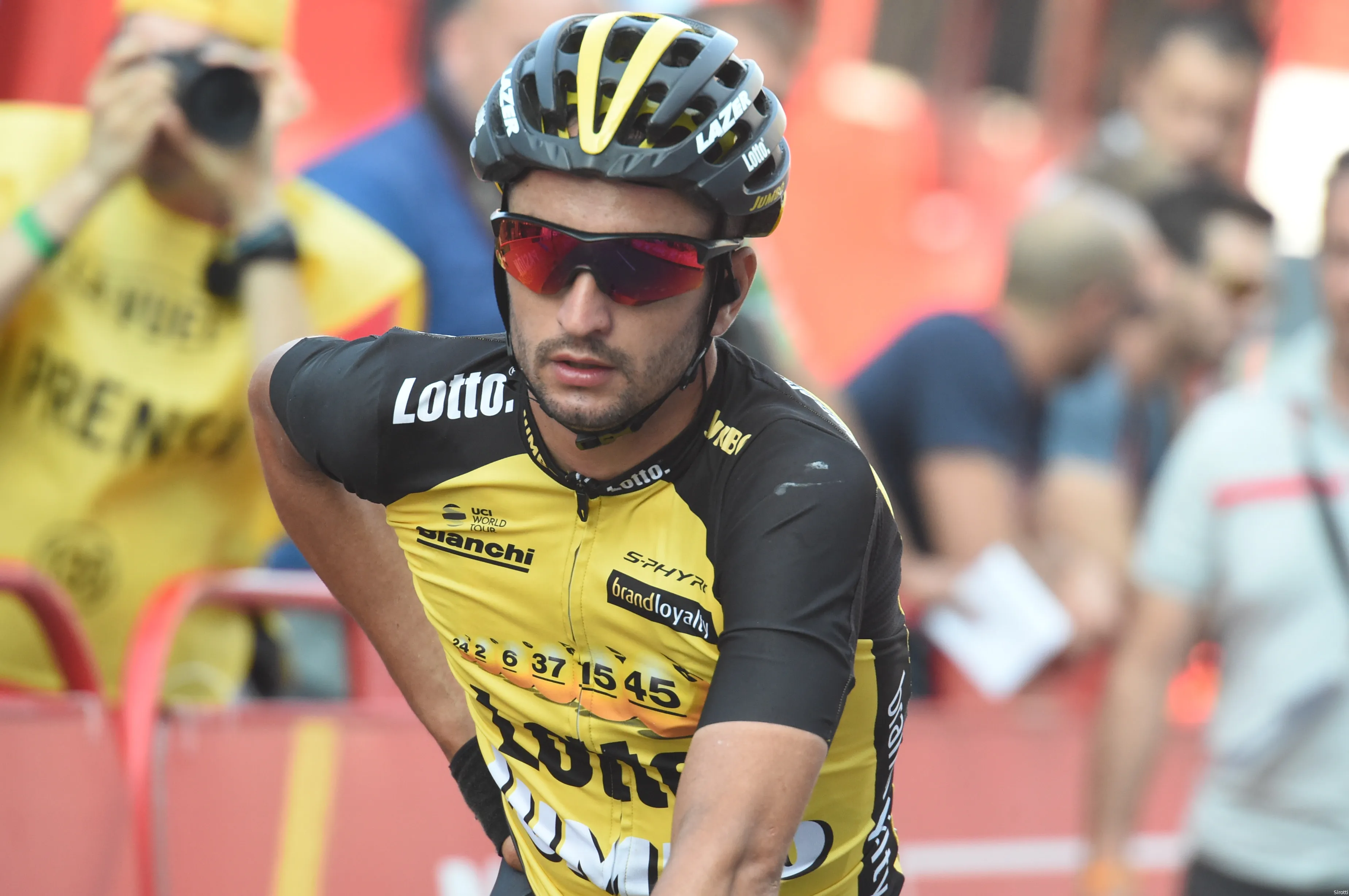
With the 2023 cycling season wrapped up, several familiar faces will be missing from next year's peloton. Among them is Juan José Lobato, a 34-year-old Spanish cyclist who briefly raced for LottoNL-Jumbo. IDLProCycling.com takes a final retrospective glance at this powerful sprinter's career.
Born on December 29, 1988, in Trebujena, Andalusia, Lobato began cycling early and soon tasted success. In 2006, at just 17, he clinched the Spanish junior championship title, outpacing Jon Aberasturi. His talents in the under-23 category shone through in the esteemed Circuito de Montanes stage race, earning him a contract in 2010 with Andalucia, a professional continental team from his home region.
That same year in September, Lobato vied for the under-23 world title in Geelong, Australia, where he finished in the top ten alongside the likes of Michael Matthews, John Degenkolb, Arnaud Démare and Sonny Colbrelli. A few months later, he embarked on his first full professional season with Andalucia, almost securing his debut pro victory in his home region's tour, only narrowly bested by Francisco José Ventoso in Jaén.
Lobato takes a step forward at WorldTour level
At the end of July, Lobato achieved his first professional victory in the Circuito de Getxo, outsmarting and outspeeding Joaquim Rodríguez. A few weeks later, he started his first Vuelta, but it was not an immediate success. He finished the following season without notable results. This laid the groundwork for his first season at the WorldTour level with Euskaltel-Euskadi. They needed points that year, and a sprinter like Lobato was a perfect fit.
At the highest level, the Spaniard took a new step: he earned several top finishes in both smaller and larger races and made his first and only appearance in the Tour de France. There, he impressively finished in the top ten three times and wore the first polka dot jersey. Just one week after the Tour de France, he won his second Circuito de Getxo, but the curtain fell on the orange professional team from the Basque Country at the end of the year. Movistar, the biggest Spanish team, picked him up.
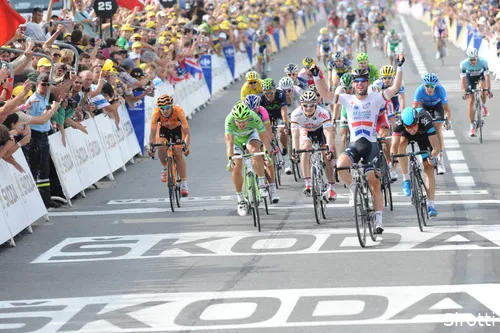
In 2014, under the guidance of team manager Eusebio Unzué, Lobato competed in his first Monument at Milan-Sanremo, impressively finishing fourth. This achievement was a highlight among his many commendable performances that season, which included victories in the stages of the Tour of Burgos and Tour of Wallonia. Building on this momentum, the next season saw him win his first WorldTour event at the Tour Down Under, narrowly missing a grand tour stage victory in the Giro. He also claimed two stage wins in the Ruta del Sol and consistently secured top placements.
Crucial mistake ends Lobato's tenure at LottoNL-Jumbo
In 2016, Lobato continued in the same vein, with four victories, including the prestigious Hatta Dam stage in the Dubai Tour, attracting the attention of LottoNL-Jumbo. The Dutch team signed Lobato for two years starting in 2017, particularly for opportunities in stages and races with challenging finishes. "If you want to be a good sprinter and a good classics rider, this team is the perfect choice," he said at the announcement, becoming the first Spaniard since Juan Manuel Garate and Luis Leon Sanchez to join the team.
Racing for the Dutch team, he finished eleventh in the Amstel Gold Race, won a stage in the Tour de l'Ain, and finished second in a stage of the Vuelta. However, at the end of 2017, a complication arose. During a training camp, Lobato seriously breached the team's internal rules by abusing some sleeping pills. He became unresponsive. "At one point, we were pulling Lobato with 25 horses, but he didn't react to anything," team boss Richard Plugge said at the time to NOS.
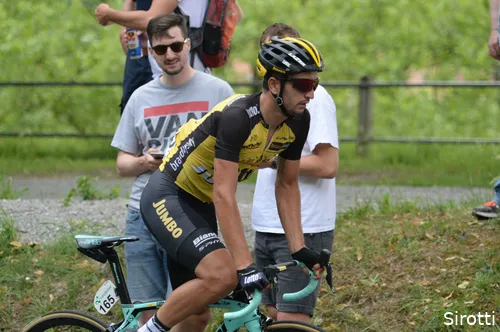
Lobato eventually woke up but still had to be taken to the hospital by ambulance. He no longer rode for LottoNL-Jumbo, as the team decided to part ways with him after the incident with the sleeping pills. The Spaniard understood the decision. "I still have to apologize to the team for breaking the rules," he said in an open letter a few months after the incident.
"I needed the medication during 2017 due to personal problems; it was the hardest year of my life," Lobato explained. "I was dealing with a divorce and grieving over the death of my uncle, who died in an accident at work. He was key to my development and left us at just 43 years old. All this turmoil made it difficult for me to sleep, and that's why I used the medication."
Lobato's career ends quietly
The fact was that Lobato suddenly found himself without a team in December 2017 for the 2018 season. "I'm just looking for an opportunity to continue racing and enjoy the sport. Thanks to cycling, I've overcome my problems, and the next step is to put on a cycling jersey and enjoy the competition," said Lobato. By mid-February, a solution emerged: the professional continental team Nippo-Vini Fantini offered him a contract, which he repaid later that season with a victory in the Coppa Sabatini. Celebrated with a finger to his lips, it would turn out to be his final career win.
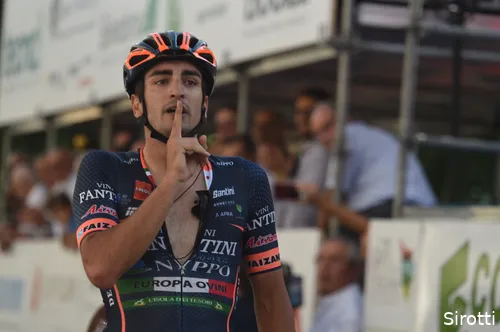
Like many sprinters of his generation, Lobato noticed his sprinting abilities were waning. After two years with Nippo, he rode for Orbea and then Euskaltel-Euskadi (which had started a comeback at the professional continental level) under Spanish colors. In 2021, he had another chance to ride in the Vuelta, but he didn't make the top ten in the sprints.
Thus, Lobato's career faded quietly. In 2023, he still attempted to race quite a bit, but often ended up with a 'DNF' (Did Not Finish). This was the case in his last race, the second stage of the Vuelta a Castilla y Leon at the end of July. "The day has come to say goodbye," he announced at the end of his career. Brief but impactful, much like his best years!
IDL-productions
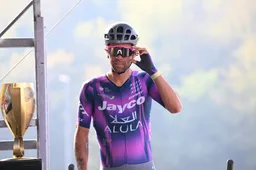
Sanremo, a world title and the yellow jersey: Michael Matthews escaped death - and that reignited his spark
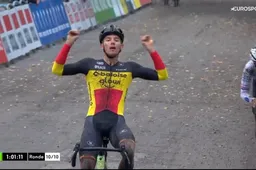
Unlike road colleagues Van der Poel or Van Aert, Nys rides twice as many cyclo-crosses: 'He doesn't want to ride only ten cyclo-crosses'
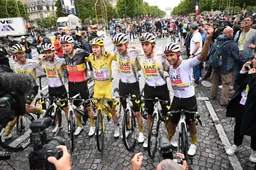
95 (or was it 97?) wins and a new record year, but losing that one race still hurts UAE Team Emirates - XRG

Former cyclocross world champion recalls wonderful memories of young Nys: "Back then we thought: that's not going to work out"

There was smoke so there was fire, but in 2026, how will Lidl-Trek make sure that fire doesn't flare up again?
Latest Cycling News

Benoot prepares for more freedom at Decathlon CMA CGM: 'Hope this was agreed with Visma'
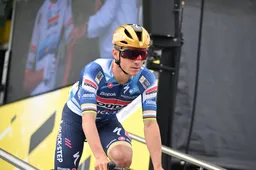
Belgian expert sees Evenepoel's maturity shine through in his 2026 programme: 'Vingegaard doesn’t do it either'
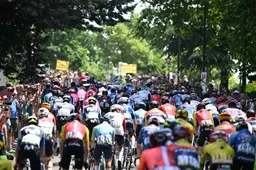
Despite rise of Uno-X, Tour of Norway disappears from calendar in 2026 due to government cuts: 'Stupid decision'

Van Aert picks up after illness with running training - thanks to new Visma | Lease a Bike-deal with Nike

Rumoured 2026 Vuelta route raises alarm: extreme climbing and a plan to attract Pogacar, but uncertainty about finishing place
Popular Cycling News
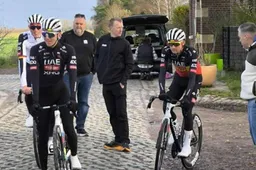
Mathieu van der Poel, get ready: after Roubaix loss, Pogacar is already flying over the cobbles again

New season, new hair: Pogacar swaps trademark tufts for a sharp cut in Belgium
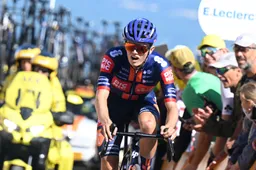
Picnic PostNL handed bad news about WorldTour-license, as transfer rumours increase: will Oscar Onley leave?

Van Aert picks up after illness with running training - thanks to new Visma | Lease a Bike-deal with Nike
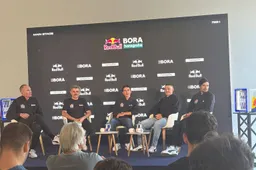
Inside Red Bull-BORA-hansgrohe’s 2026 project: Evenepoel and Lipowitz to the Tour, Roglic to the Vuelta and more
Latest Comments
- Ah, the consequences of riding for Israel.Veganpotter11-12-2025
- Pidcock could follow everyone but Pogi while finishing 3rd. No second place rider this season😃Veganpotter16-11-2025
- Now the Palestinian protestors can stop their whining. Trump came to the rescue. So they can now STFU and go back to waving the rainbow flags.raufus15-10-2025
- Cracked the code lol. If it was that easy to 'crack the code' jonny Vegas would be charging up the Kwaremont giving Pog a dose of his medicine. Evenepoel can't match pog on a climb and neither can mvdp. Anything with a half difficult climb and Pog smashes the field. Even on flat(ish)parcours like Roubaix it came down to a mistake and crash by pog to definitively crown mvdp. MSR is the only one that Pog probably won't win.kevpt10-10-2025
- We've seen this movie before. I think Pogacar is doping.DeadBlow10-10-2025
- 👍Bea08-10-2025
- 👌🏻Bea08-10-2025
- What the data doesn't show is how much of an effect drafting had for evenepoel. Pogacar went with del toro at 100km whilst Evenepoel was still in the bunch. Despite the bike changes he still had a lot of assistance getting back to the bunch. Pogacar then rode 60km solo whilst evenepoel rode with Healy/Skjelmose until going solo in thd last 10-15km. Thats ~20% less power / energy requirements for 45-50km. Apples and oranges...kevpt30-09-2025
- 👏👏Bea24-09-2025
- Agreed! As we all know now, Juan Ayuso will be on another team. But it was sweet to see him win the stages at La Vuelta. I do love the drama of cycling admittedly but its clear to see the talent of winners of stages in a Grand Tourryhw2814fq921-09-2025
Loading